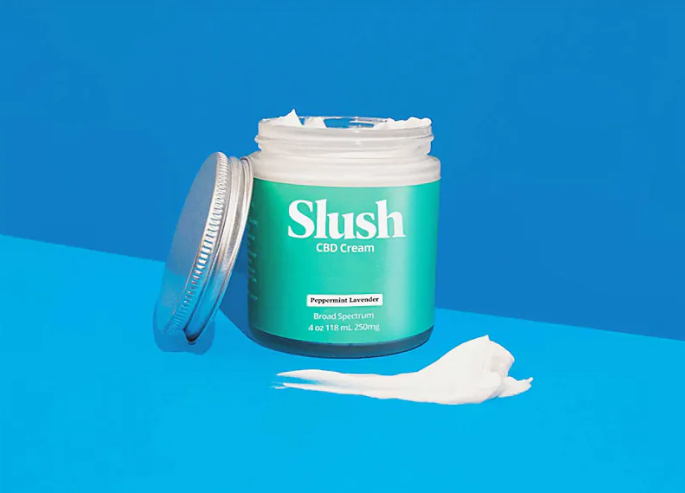As the popularity of cannabidiol (CBD) continues to rise, more and more individuals are turning to topical applications like CBD creams for targeted relief. Among the most common uses is CBD cream for pain, which offers a promising natural alternative to traditional pharmaceutical options. While short-term usage seems generally safe and effective, many consumers are asking an important question: How safe is CBD cream for long-term use?
This editorial will explore the safety profile of CBD creams when used over extended periods, review current research findings, address potential side effects, and offer practical guidance for users seeking consistent, daily relief from chronic discomfort or inflammation.
Understanding CBD Cream: What Is It and How Does It Work?
CBD cream is a topical product infused with cannabidiol, a non-psychoactive compound extracted from the hemp plant. Unlike THC, CBD does not induce a high, making it a favorable option for those looking for therapeutic benefits without mind-altering effects.
CBD interacts with the body’s endocannabinoid system (ECS), which helps regulate pain, immune response, and skin health. When applied to the skin, CBD binds with cannabinoid receptors in localized areas, offering potential relief from muscle aches, joint stiffness, inflammation, and skin irritation. This localized delivery makes CBD cream for pain especially attractive for those managing conditions such as arthritis, back pain, or sports injuries.
The Rising Popularity of Long-Term Use
Topical CBD products are not only used for acute flare-ups but also for chronic conditions. Individuals with long-standing pain or skin concerns often incorporate CBD cream into their daily wellness routine. The question is whether this sustained use presents any risks or drawbacks.
Long-term use of any product—natural or synthetic—warrants scrutiny. With CBD being relatively new in the wellness marketplace, the body of research is still growing. However, early studies and anecdotal evidence suggest that CBD cream is generally well-tolerated, even with extended application.
What the Research Says About Long-Term Safety
The good news is that CBD, in general, has a high safety profile. According to a 2018 report from the World Health Organization (WHO), “CBD is generally well tolerated with a good safety profile.” The report also notes that CBD shows no potential for abuse or dependence.
However, most long-term safety studies have focused on ingestible CBD, such as oils and capsules. Topical applications, like CBD cream for pain, have not been as extensively studied for long-term use, but what is known so far is encouraging:
1. Minimal Systemic Absorption
CBD creams act locally and do not typically enter the bloodstream in significant amounts. This drastically reduces the likelihood of systemic side effects like liver enzyme elevation or drug interactions, which are concerns with oral CBD.
2. Skin Tolerance
Dermatological studies have shown that CBD is generally non-irritating to the skin. In fact, it may help reduce skin sensitivity and support healthy skin barrier function. Long-term users rarely report skin dryness or allergic reactions, though patch testing is always recommended when trying a new product.
3. No Psychoactive Effects
Because topicals do not cross the blood-brain barrier, they do not produce any mind-altering effects, even with repeated use.
Potential Side Effects of Long-Term CBD Cream Use
While CBD cream is safe for most people, some may experience mild side effects, especially with prolonged use. These can include:
- Skin Irritation or Allergies: Though rare, some users may develop localized rashes or itchiness. This is usually due to additional ingredients (like essential oils or preservatives) rather than CBD itself.
- Reduced Efficacy Over Time: Like with many topical treatments, the body may become accustomed to the compound, requiring users to adjust frequency or dosage.
- Interaction with Other Skin Products: Using CBD cream alongside other strong skincare products (like retinol or exfoliants) might increase sensitivity or irritation.
To avoid these outcomes, it’s important to monitor your skin’s response, keep the application area clean, and choose a high-quality product made with minimal, non-toxic ingredients.
Tips for Safe Long-Term Use of CBD Cream
If you’re considering incorporating CBD cream into your long-term wellness regimen, keep the following best practices in mind:
1. Choose Quality Products
Always opt for CBD creams that are third-party lab tested, clearly labeled with dosage, and free from harmful additives. Look for transparency in ingredient sourcing and manufacturing processes.
2. Start Low and Monitor
Begin with a low application amount to see how your skin and body respond. Gradually increase the amount or frequency as needed.
3. Consult a Healthcare Professional
If you’re managing a chronic health condition or taking other medications, speak to your doctor before using CBD products regularly.
4. Rotate Usage if Needed
Incorporate rest days or alternate with other therapies to prevent tolerance or skin fatigue.
5. Patch Test New Products
Always apply a small amount of any new cream to a patch of skin before applying it more broadly, especially if you have sensitive skin.
Who Should Be Cautious About Long-Term Use?
CBD cream is safe for most adults, but certain groups should exercise extra caution:
- Pregnant or Breastfeeding Women: There is limited data on how CBD affects fetal development or breast milk.
- Children: Long-term effects on developing bodies are not well understood.
- People with Skin Conditions: If you have eczema, psoriasis, or very sensitive skin, test carefully and consult a dermatologist.
- Individuals Taking Prescription Medications: Although topicals rarely interact with medications, it’s best to be cautious.
FAQs About Long-Term Use of CBD Cream
Q1: Can I use CBD cream every day?
Yes, many users safely apply CBD cream for pain daily for consistent relief. It’s best to monitor your skin and adjust usage if any irritation occurs.
Q2: Will using CBD cream long-term make me build a tolerance?
There’s limited evidence suggesting tolerance build-up with topical CBD. If you notice reduced effects, consider adjusting your routine or combining it with other wellness strategies.
Q3: Is CBD cream safe for seniors?
Yes, in fact, seniors are among the top users of CBD creams for managing arthritis, joint pain, and neuropathy. Always choose a gentle formulation suited for aging skin.
Q4: Can I use CBD cream along with oral CBD oil?
Yes, combining topical and ingestible CBD can enhance relief for chronic conditions. However, consult your doctor if you’re using other medications.
Q5: Does CBD cream expire or go bad over time?
Yes, like any skincare product, CBD cream has a shelf life (usually 12-24 months). Check the expiration date and store it in a cool, dry place.
Final Thoughts: Is Long-Term Use of CBD Cream Safe?
The long-term use of CBD cream for pain appears to be safe for the vast majority of individuals, particularly when high-quality products are used responsibly. With minimal side effects, a low risk of systemic interaction, and high user satisfaction, CBD cream presents a viable option for those seeking natural, ongoing relief from chronic discomfort.
That said, users should remain mindful of their body’s response, rotate usage when necessary, and consult healthcare providers—especially when other conditions or medications are involved. As research continues to grow, the future looks promising for CBD cream as a sustainable solution in long-term pain management and overall wellness.
- CBD Cream for Pain Relief – Fast, Natural & Effective Formula
- Soothe sore muscles and relieve discomfort naturally with CBD cream for pain—fast-acting, effective, and ideal for daily relief and recovery.
- cbd arthritis cream, cbd cream for arthritis, cbd cream for neck pain
Related posts:
 Best Topical Finasteride & Minoxidil Spray for Hair Regrowth
Best Topical Finasteride & Minoxidil Spray for Hair Regrowth
 What Are the Key Considerations Before Getting Filler Injections?
What Are the Key Considerations Before Getting Filler Injections?
 Dr. Kami Hoss Gives Out the Truth About Brushing & Flossing-Protecting Your Teeth
Dr. Kami Hoss Gives Out the Truth About Brushing & Flossing-Protecting Your Teeth
 Can Atrial Fibrillation Be Cured? Latest Research & Insights
Can Atrial Fibrillation Be Cured? Latest Research & Insights
 Expert Lung Care in Jaipur: Why You Shouldn’t Ignore Breathing Issues
Expert Lung Care in Jaipur: Why You Shouldn’t Ignore Breathing Issues
 Control Fasting Blood Sugar with Confidence – Get Glycomet Online Today
Control Fasting Blood Sugar with Confidence – Get Glycomet Online Today
 Prozenith: A Natural Weight Loss Supplement 70% OFF Discount
Prozenith: A Natural Weight Loss Supplement 70% OFF Discount
 Recovery and Aftercare Tips for Gynecomastia Patients in Dubai
Recovery and Aftercare Tips for Gynecomastia Patients in Dubai







